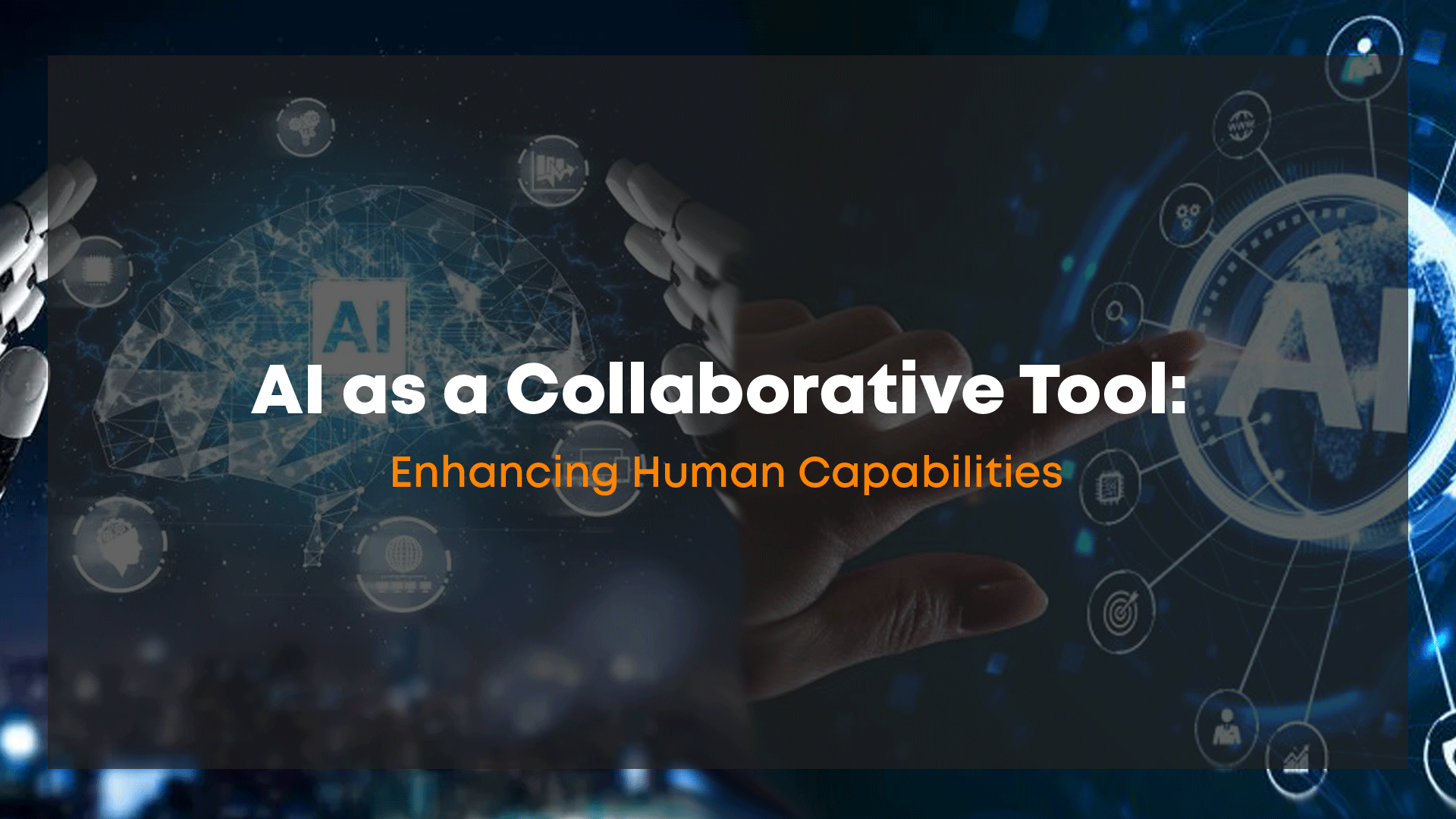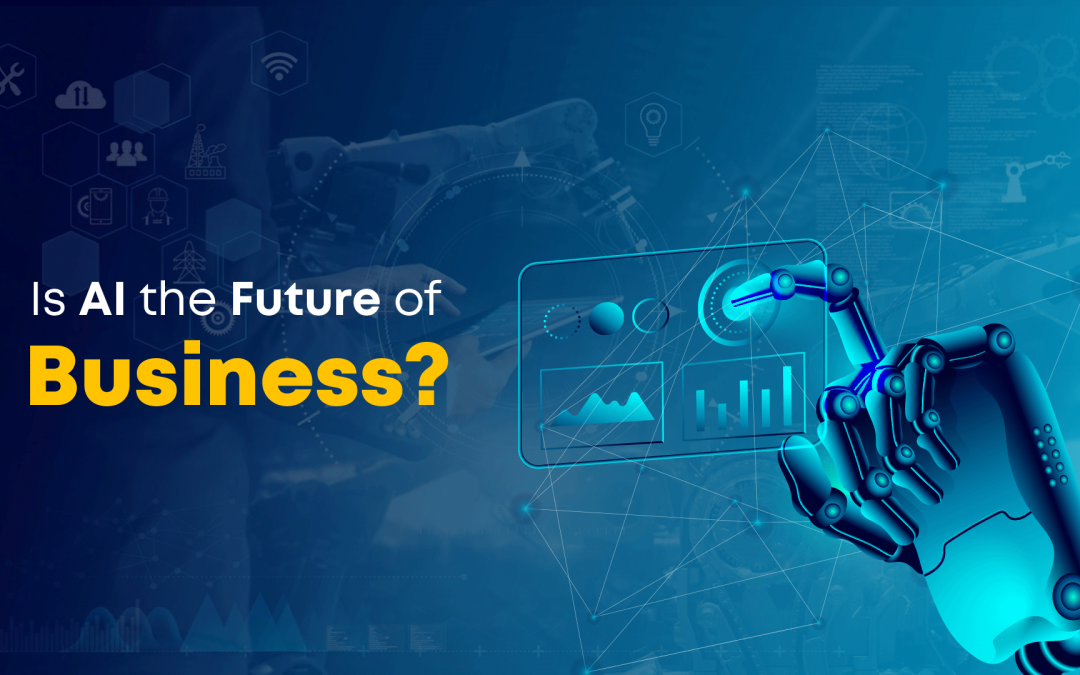The world is undergoing a transformation due to the impact of AI, and we are adjusting to meet the changing demands of the world. Previously, AI was a futuristic concept that we only encountered in works of fiction, and we may have wondered whether such innovative changes could ever become a reality. However, this notion is now outdated, as AI has become a ubiquitous presence in our daily lives, from digital assistants like Alexa and Siri to chatbots providing constant customer support.
AI is pervasive, and its role in business is promising, as it disrupts traditional models and introduces new opportunities. It is not surprising that AI is already transforming the business landscape by equipping professionals to make decisions based on data analysis.
The significance of AI for businesses is growing as they strive to maintain their competitiveness in the constantly evolving business environment. Here are the key reasons why AI has a bright future in the business world:
1. Improved Efficiency and Decision-Making: AI offers high ROI to businesses by increasing efficiency and reducing costs through automation. Additionally, AI helps businesses make better decisions by analyzing vast amounts of data beyond human capability. The areas with the highest returns on investment in AI include customer care, IT operations, and decision-making.
2. Data Standardization: Standardizing data is crucial in business, but it can be challenging with diverse sources. AI can assist in standardizing data, simplifying analysis and usage. For example, AI in healthcare can standardize patient data from various sources, enabling medical professionals to identify patterns and make informed decisions.
3. Opinion Analysis: In today’s fast-paced business environment, it is essential to keep track of customer opinions. AI can help with this by analyzing customer sentiments, such as social media posts and customer reviews, to identify common themes and sentiments.
4. Expedited Decision-Making: AI can accelerate business decisions by analyzing real-time data, enabling companies to stay ahead of the competition. For instance, in finance, AI systems can analyze market trends and provide real-time investment recommendations. IDC predicts that by 2026, 85% of enterprises will use AI to enhance their decision-making abilities.
5. Complex Problem-Solving: AI is vital for businesses to solve complex problems. For instance, in manufacturing, AI analyzes production processes to identify inefficiencies, while in logistics, it optimizes delivery routes to reduce costs. Gartner forecasts that by 2030, AI will eliminate 80% of manual project management tasks.
How AI is Used by Companies in Business?
Hopper uses AI to predict low prices for flights, hotels, cars, and vacation rentals with 95% accuracy, saving users an average of $65 per trip. By analyzing large volumes of booking data, Hopper offers the latest prices and suggests whether to wait for prices to drop. This demonstrates how companies can utilize AI to make predictions based on data and improve customer experience.
Slack’s AI utilizes a “work graph” to gather information on how companies and employees use the tool, allowing the AI to train models to make it more user-friendly. Companies can harness AI to gather knowledge on user behavior and enhance the overall user experience.
Whole Foods uses Amazon’s Just Walk Out system, which tracks customer purchases with computer vision and deep learning. Customers can pay without any checkout interaction, and the system provides a digital receipt. By leveraging AI technologies like computer vision and deep learning, companies can revolutionize traditional processes and create new opportunities.
Home Depot uses prescriptive analytics and machine learning to minimize theft and other types of losses. By detecting irregularities in the retail process, the system can identify issues like fraud, incorrect pricing, or a lack of proper training. This can potentially save the company billions in losses.
AI as a Collaborative Tool: Enhancing Human Capabilities

The future of AI involves its role in supporting human decision-making rather than replacing it. AI can enhance human capabilities, and companies can harness its power to improve customer experience and optimize business processes. Contrary to popular depictions, AI should be viewed as a collaborative tool rather than a replacement for human decision-making.
Let’s examine an example: The University of Kansas Health System has introduced a generative AI app to more than 140 hospitals. This app records and transcribes patient interviews and uses the information to automatically complete medical charts. The aim is to assist over 1,500 physicians and alleviate the increasing burden caused by clinical documentation tasks. The AI is intended to enhance, rather than replace, the work of healthcare providers.
This use of AI in healthcare is a great illustration of how AI is augmenting human abilities, not replacing them. The expanding role of AI will support human decision-making since AI is designed to enhance our capabilities. AI algorithms can analyze vast amounts of data rapidly and offer insights that can inform decision-making. However, humans establish the criteria that the AI system employs to analyze data and interpret the results.
Furthermore, AI systems lack the capacity for empathy and critical thinking, two essential traits that make us human. Human decision-making involves a broad range of considerations, including personal values, ethics, and social factors. AI can provide valuable insights, but it cannot replace the nuanced judgment that humans bring to the table.
As technology progresses, the demand for specific skills in the workforce will shift, resulting in changes in job roles. Nonetheless, people will still be necessary in the workforce, with numerous jobs requiring a more technical skill set. The potential benefits of Artificial Intelligence (AI) for businesses are numerous and it’s time for organizations to embrace them. AI can improve decision-making processes by using data and predictive modeling. However, it’s important to recognize that machines are not perfect and their effectiveness depends on their software and data.
Even small and medium-sized enterprises can benefit from AI solutions, such as chatbots, analytics, and automation. Many companies, including Amazon and Netflix, have already successfully implemented AI in their operations to forecast customer behavior and recommend personalized content.
AI-powered pricing is also a critical tool for retailers and transportation companies like Uber, as it helps to determine optimal prices based on multiple factors. Rather than fearing the potential risks, companies should embrace AI as a valuable tool for staying ahead of the competition and improving their operations. The benefits of AI are too significant to ignore.
Here are some tips for businesses looking to integrate AI into their operations:
1. Identify where AI can make the most impact: Begin by pinpointing areas where AI can have the most significant impact on your business. This can include automating repetitive tasks, providing predictive analytics, personalizing marketing strategies, and enhancing customer experiences.
2. Establish an AI-ready infrastructure: Implementing AI requires a robust infrastructure capable of handling the data processing needs of machine learning algorithms. Ensure that your IT infrastructure is secure, up-to-date, and scalable enough to meet the demands of AI.
3. Hire the right talent: Building an effective AI team requires a blend of technical and business expertise. Hire data scientists, engineers, and business analysts who can work together to develop AI solutions that align with your business objectives.
4. Utilize existing AI platforms: Several AI platforms are available in the market, such as Google Cloud AI Platform, Microsoft Azure, and Amazon Web Services. These platforms offer pre-built AI models and tools that can expedite your AI adoption process.
5. Start small and iterate: Begin with a pilot project to test the waters, and gradually scale up as you gain experience and confidence. AI is an iterative process, and continuous improvements are critical to achieving the desired outcomes. Set realistic expectations and measure the possible outcomes of this strategy.
Conclusion
As technology progresses, AI’s role in business appears to be inevitable, but its application must be well-planned for businesses to take advantage of it. Unexpected uses of AI will likely arise as it advances, so businesses must stay open-minded and flexible to seize these opportunities.
 Finland
Finland Bangladesh
Bangladesh
